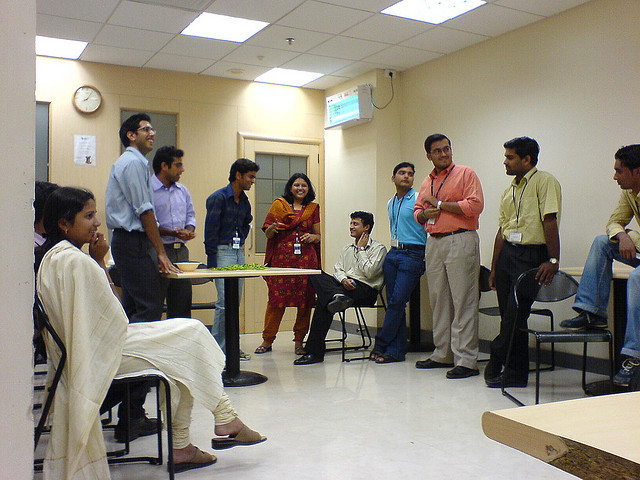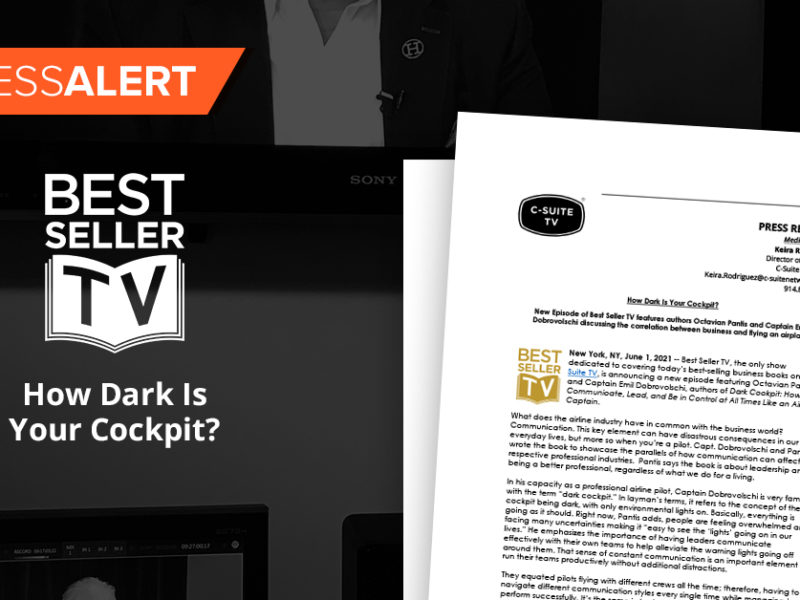
7 Steps to Infuse Entrepreneurial Thinking into Company Culture
7 Steps to Infuse Entrepreneurial Thinking into Company Culture https://csuiteold.c-suitenetwork.com/wp-content/uploads/2015/03/243223728_7162f6c3d9_z.jpg 640 480 C-Suite Network https://csuiteold.c-suitenetwork.com/wp-content/uploads/2015/03/243223728_7162f6c3d9_z.jpgby Michael Houlihan & Bonnie Harvey
Every company wants to stay relevant and be in the forefront of their industry. This requires an imaginative staff creating new solutions and thinking outside the box. But first you need to change your company culture. This is easier said than done.
A positive company culture is what we relied upon when building the Barefoot Wine brand into a national best seller. Here’s how we did it:
- The Money Map. When we hired people they were give an infographic showing the circuitous route the money took to get from the consumers, moving through the retailers and distributors, and eventually into their paychecks, bonuses and benefits. This was not just a great educational tool from an orientation perspective, but it was a great way to set the stage for a company culture of sales!
- The Two-Division Company. Unlike the typical pyramid structure with the CEO on the top, followed by the C-Suite, and then the myriad of divisions and departments, our organization had just two divisions: Sales and Sales Support. Everybody who was not in Sales was in Sales Support, including the CEO, receptionist and accounting, marketing, product development, and production. Why? Because without sales there would be no income. If you really believe the customer should be on top, put sales on top and have everyone else support sales.
- Pay for Performance. We used our pay structure to develop a creative, supportive team. By making their monthly bonus and part of their 401K directly based on their production and the profits of our company, they became better team players and exerted peer pressure on others to perform. When you paying your people right, the performers can’t afford to quit and the non-performers can’t afford to stay.
- Make Mistakes Write. When you make mistakes, don’t just right them, writethem! Establish a culture of permission that says, “You can be creative, experimental, and make mistakes – as long as you identify what went wrong and what documents need to be changed.” It may be a sign on the wall, a label on a package, or a checklist. Or it may be a signoff sheet, a policy, a procedure, or a new clause in a contract. When something we never thought could go wrong went wrong, we would celebrate knowing that, thanks to this mistake, we now had a much better procedure that saved time and reduced misunderstandings.
- Acknowledgement. We sent out an acknowledgement memo on every person’s anniversary with the company that said what they did last year to improve everybody’s situation. When you catch someone doing something right, creative, or efficient, tell the world! If you make it a public memo praising the person’s accomplishment, the entire staff will know that this type of behavior gets recognition and they will have more respect for that person as a team player.
- Fun. People want to work with and buy from people who are fun. In our company, we all had fun titles. Because we were Barefoot Wine, Michael was CEO and “Head Stomper.” Bonnie, whose foot was on the label, was “Original Foot.” Our Controller, Doug McCorkle, was “The Cork,” because somebody had to put a stop to it. When work becomes fun, everyone is more creative.
- Remove Blockage. When a good idea has to go through “channels,” and “compliance,” people can be discouraged by structure and restraints. At Barefoot, we regularly allowed direct access to top management for idea presentations and rewarded the person who came up with it. Our compliance people would identify parameters inside of which ideas could flow without lengthy compliance approval.
Company culture starts at the top and permeates throughout the entirestructure. It’s time to take a fresh look at company structure and the general attitude of top management towards everything from sales to mistakes, acknowledgement to compensation, and orientation to fun.
*This blog originally appeared at TheBarefootSpirit.com.
 Michael Houlihan and Bonnie Harvey are the founders of Barefoot Wine, the largest bottled wine brand in the world, and authors of the New York Times Bestselling Business book The Barefoot Spirit. From the start, with virtually no money and no wine industry experience, they employed innovative strategies to overcome obstacles, create new markets and foster key alliances. Michael and Bonnie now share their experience and entrepreneurial approach to business as consultants, authors, speakers, and workshop leaders. Michael and Bonnie launched at the C-Suite Network Conference their new companion book to The Barefoot Spirit entitled, The Entrepreneurial Culture, 23 Ways to Engage and Empower Your People. Learn more at barefootspirit.com, and find them on Facebook and Twitter @barefoot_spirit.
Michael Houlihan and Bonnie Harvey are the founders of Barefoot Wine, the largest bottled wine brand in the world, and authors of the New York Times Bestselling Business book The Barefoot Spirit. From the start, with virtually no money and no wine industry experience, they employed innovative strategies to overcome obstacles, create new markets and foster key alliances. Michael and Bonnie now share their experience and entrepreneurial approach to business as consultants, authors, speakers, and workshop leaders. Michael and Bonnie launched at the C-Suite Network Conference their new companion book to The Barefoot Spirit entitled, The Entrepreneurial Culture, 23 Ways to Engage and Empower Your People. Learn more at barefootspirit.com, and find them on Facebook and Twitter @barefoot_spirit.




